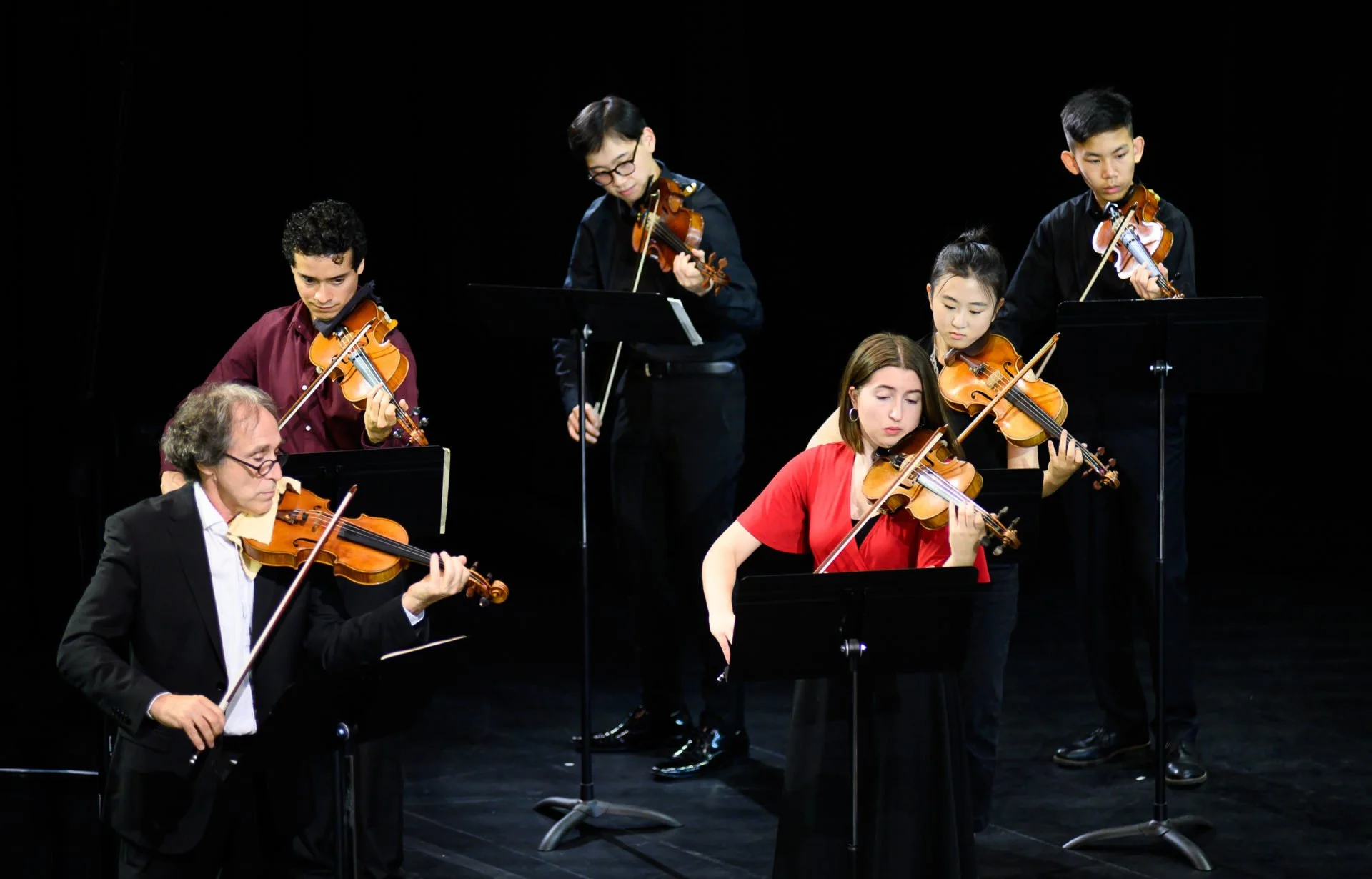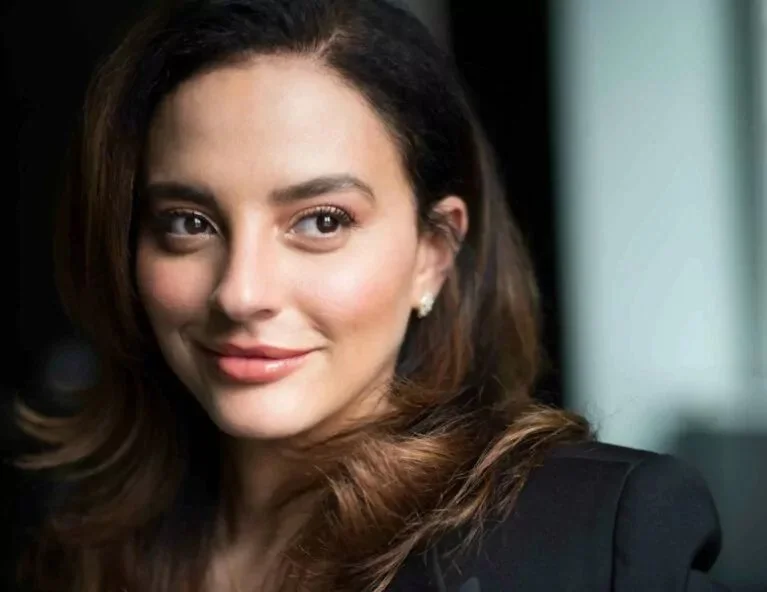Kessler Academy connects music by Polish and Ukrainian composers to tumult of today's world
Microcosmos Quartet and Music on Main program culminates in string-orchestra concert
Marc Destrubé leads the young players of the Kessler Academy. Photo by Jan Gates
Music on Main and the Microcosmos Quartet present the Kessler Academy on August 7 at 3 pm at Pyatt Hall
CHOOSING THE REPERTOIRE for this year’s youth string intensive, the Kessler Academy, Marc Destrubé found pieces that would resonate with our volatile times.
Amazingly, he programmed it before Russian invaded Ukraine. “I was more thinking about the young people we were working with, and we do provide some discussion time to discuss the music and the role of music in the wider world,” Microcosmos Quartet’s first violinist tells Stir.
The program that the Kessler students will learn draws from composers who lived through upheaval and disrupted times—linking the music directly across the decades to the pandemic challenges and war in Ukraine that the young players have been surrounded by in the last few years.
There are works by Polish composers Krystof Penderecki and Mieczyslaw Weinberg, whose lives were impacted by World War II, as well as Ukrainian Valentin Silverstrov, who was recently forced to flee to Germany when his home country was invaded.
And chances are the Kessler Academy’s promising young musicians may never have had the opportunity to play works by these composers. That modern and contemporary focus is part of what makes the Kessler intensive, with its five days of focused rehearsal culminating in a public concert with Microcosmos at Pyatt Hall, so unique.
“One of the big gaps I see is that music students, right through to masters or doctoral programs, tend to do very little music of our time, or even close to it,” Destrubé says. “They’ll do a smattering or they’ll be in a contemporary ensemble in their respective schools, but except for rare cases, they would never have done a whole program of music from the last century.
“That I find absolutely extraordinary,” the artist adds, “that one still thinks of music composed 100 years ago as new music or contemporary music.”
In its eighth year, the Kessler Academy this year pays tribute to its namesake, Vancouver centenarian and philanthropist Susan Kessler, who passed away in October 2021. Through Music on Main and Microcosmos, she supported the mentorship program that creates a conductorless chamber orchestra. Its members work as a group and also in instrument sections on pieces from the past century.
“I suppose that's its value: that we don't have a conductor and we’re less like an orchestra and more like a string quartet. It feels like expanded chamber music,” Destrubé explains. “One of the things I’ve learned is that as soon as there's a leader or director, then everybody sort of sits back and waits to be told what to do. But if it’s chamber music, then everybody’s more engaged.”
Destrubé says the process mimics what the talented participants, aged 13 to 34, will face after graduation.
“It’s the nature of a musician's life is that, whether you're in a symphony or are a freelancer, we tend to be under enormous pressure to create a performance in a very short time and get to know music and be prepared and work with each other for several hours, day after day,” he explains. “That’s not something young people tend to experience in their school setting. They'll have one or two orchestra rehearsals per week, then after several weeks or months they’ll have a performance. But the reality of the professional world is that it all happens in a very concentrated period.”
Destrubé describes Penderecki’s Sinfonietta No.1 as “beginning very aggressively with great chords, and then it has a great viola solo”. Silvestrov’s 2001 Hymn is romantic, gentle, and reflective. “He really explores the idea of silence, which I think is fascinating,” says Destrubé.
“And then Weinberg’s Symphony No. 2 [for String Orchestra, Op. 3] is a beautiful romantic work, a long piece at half an hour,” Destrubé says. “It was written when he had fled to the Soviet Union from Poland; his parents and sister were all killed by the Nazis in a concentration camp.” Weinberg met Dmitri Shostakovich during that exile, and Destrubé says you can hear a lot of that composer’s influence in the piece, too.
Students at the academy also have some deep discussions about the pieces, the context in which they were written, and how all that relates to our wider world.
“There’s a feeling of, ‘How can we seize the moment or use the opportunity to think about our musical world and how we can shape it in a way that's different, using this enormous interruption to performance life as an opportunity to make change?’” he says. “So the project tries to bring together those ideas of performing music that was composed at a time when there was tumult…and have the young people think about them more deeply than they might normally about music in society at large.”
And of course, the audience who comes to hear the music at Pyatt Hall will be able to make the same connections—and maybe find some sense of peace in the process.














